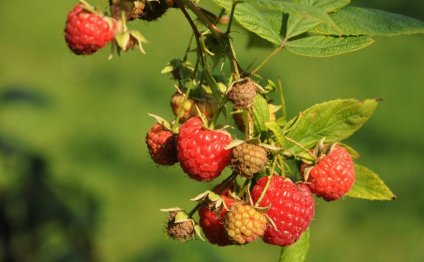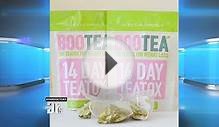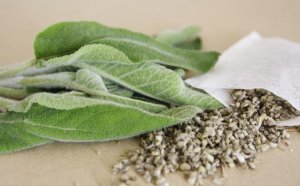
Raspberry tea pregnancy
 If you talk to any midwife, doula, or crunchy mama you’re practically guaranteed to hear about the importance of drinking red raspberry leaf tea for pregnancy.
If you talk to any midwife, doula, or crunchy mama you’re practically guaranteed to hear about the importance of drinking red raspberry leaf tea for pregnancy.
I drank it with both my pregnancies. All my friends did. I’ve heard from tons of mamas on Facebook and via email about the benefits of red raspberry leaf tea.
But does it really work? What does the science say?
The truth about red raspberry leaf tea
Despite being a favorite among pregnant mamas, there is actually a bit of controversy around the effectiveness of our coveted elixir.
- This study, conduced on rats, found that RRL tea and capsules did stimulate contractions in rats. BUT, at the highest concentrations, RRL actually inhibited contractions. They conclude that, overall, it doesn’t really work.
- But then there’s this study, also conducted on rats, suggests that RRL can actually have some adverse affects on the baby later in life. Indeed, the babies reached puberty earlier, and THIER babies had growth restrictions. Ugh.
With both the rat studies, the mother rats consumed RRL right from the start of their pregnancies, at doses much higher than what humans ingest in a cup of tea. And, they’re rats.
Whereas, the conventional wisdom in the crunchy community says to wait until your second trimester to drink red raspberry leaf tea, and do so at a dosage recommended on the package.
So yeah. There’s controversy everywhere, even with pregnancy tea.
I just wanted to share the info about the studies above to give you the full story.
Frankly, I put more stock into the experience of moms throughout the centuries (and in our community), as well as my own positive experience with red raspberry leaf tea.
So let’s move on, and start at the beginning.
What is red raspberry leaf tea?
Red raspberry leaf tea comes from the leaves of the red raspberry plant. This herbal tea has been used for centuries to support respiratory, digestive and uterine health, particularly during pregnancy and childbearing years. While usually known as a female herb, red raspberry leaf tea can also help support the prostrate and various stomach ailments in children.
Unfortunately, the tea does NOT taste like raspberries. It tastes more like a black tea. No bad by any means, just not fruity as the name sorta suggests.
Health benefits of red raspberry leaf
Best known as “the woman’s herb”, red raspberry leaf tea contains the alkaloid, fragrine, which can help strengthen the uterus as well as the pelvic area.
Red raspberry leaf is known to:
- Ease menstrual discomfort
- Improve reproductive health
- Balance hormones to increase fertility
- May improve chances of implantation
- May prevent miscarriage by strengthening and toning the uterine wall
The uterus needs a lot of vitamins and minerals to function properly and red raspberry leaf tea has almost all of them. Red raspberry leaf is high in Vitamins C, E, A, B and has significant amounts of major minerals like magnesium, potassium, calcium, and phosphorus. It also contains essential trace minerals such as zinc, iron, chromium and manganese. These vitamins and minerals are in a readily absorbable form, making Red Raspberry Leaf tea a wonderful, food-based “supplement” during preconception, pregnancy and beyond. The nutritional boost that RRL gives you can help improve your immune system as well.
Other uses for red raspberry leaf tea
Red raspberry leaf is also used in folk medicine for ailments unrelated to pregnancy such as to lower unhealthy blood pressure and blood sugar levels, as well as to treat acne, adrenal fatigue, sore throat, canker sores, and cold and fevers. It has been used to treat children with diarrhea, vomiting or the flu. Red raspberry leaf tea can also help ease a pet’s stomach upset when he is eating something he shouldn’t have. Men can benefit from this tea too as it supports prostate health.
How it can help pregnancy and birth
Studies have shown that red raspberry leaf tea can help to make labor faster and reduce complications and interventions during birth. One study found that women who consumed RRL tea regularly are less likely to go overdue or give birth prematurely. These women may also be less likely to receive an artificial rupture of their membranes, or require a caesarean section, forceps or vacuum birth than the women in the control group. Red raspberry leaf has many other benefits to pregnancy, birth, and postpartum too.
- Improves the effectiveness of contractions
- Improve strength of amniotic sac
- Reduced pain during labor and after birth. By toning the muscles used during labor and delivery, labor may be shorter and less painful.
- Helps balance postpartum hormones
- High mineral count helps bring in breast milk for many women
In addition, anecdotal evidence and the centuries of use for women’s health in traditional medicine speak to the benefits of consuming red raspberry leaf tea.
When to start red raspberry leaf tea during pregnancy?
Some healthcare professionals recommend waiting until the 2nd trimester to begin drinking red raspberry leaf tea. This is because RRL may increase uterine contractions and potentially threaten a miscarriage, although there are no studies to corroborate this.
Some midwives and herbalists recommend beginning red raspberry leaf tea as early as you want because it has been used safely during pregnancy tea for centuries.
Mama Natural’s recommendation: wait until the second trimester.
The conservative approach can’t hurt, especially for mamas with a history of miscarriage. Of course, talk with your healthcare provider to decide what’s right for you.
Drink 1-3 cups of red raspberry tea daily for an optimal pregnancy and birth.
My experience with red raspberry leaf tea
With my first pregnancy, I remember my midwife recommending red raspberry leaf tea. She swore that it made all of the difference in her natural labors. I listened and tried a cup a few days later. I felt very slight uterine cramping, which scared me, so I stopped drinking and forgot about the rest of my pregnancy. I’m not a big tea drinker in general so the whole thing wasn’t on my radar.
The RRLT was my afternoon ritual… 16 ounces of warm tea mixed with coconut milk. (See recipe below.)
The week of my due date, I drank the Labor Day Tea recipe (also below) for two consecutive days and BOOM! Baby Paloma made her debut.
Her birth was so quick and painless (yes! Not painful!) that I almost didn’t make it to the birthing center on time. My contractions were so strong and effective (again, not painful) that she just moved right out with no issues.
Her birth was actually FUN! And I believe RRL tea definitely played a role in this.
Side note: I started drinking red raspberry leaf tea at 14 weeks. I tried at week 8 but again, I felt some uterine tightening so felt more comfortable waiting. By the second trimester, I drank it with no problem and didn’t feel any tightening (although I’m sure it was happening because of how “in shape” my uterus was on my labor day.)
RELATED VIDEO



Share this Post
Related posts
Raspberry tea during pregnancy
Feature image from There is not a lot that I can really say about the benefits of Raspberry leaf tea for women, especially…
Read MoreRaspberry tea recipe
With all the beautiful raspberries we’ve picked the past month, I decided to take my favorite cold sweet tea to a new level…
Read More










